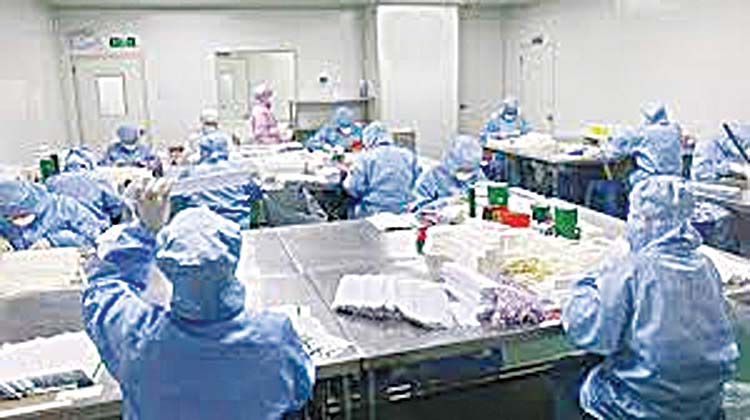Beijing, Jan 9 (FN Bureau) Twenty leading engineers and scientists of the Chinese Academy of Engineering have died less in a month after the lifting of the COVID-19 restrictions, which is more than the average annual mortality among academics, Chinese media reported The Chinese Academy of Engineering is one of the country’s leading academic institutions and the most prestigious engineering school. It has over 900 members, which have participated in almost all China’s megaprojects, including the world’s largest Three Gorges hydroelectric dam, the high-speed rail network, and the Tiangong space station. Twenty members of the Academy have died between December 15 and January 4, while in 2017-2020, an average of 16 scientists died per year, and 13 academics died in 2021, the South China Morning Post newspaper reported on Saturday. The youngest Academy’s member died in December was 77-year-old physicist Ti Tianchu, who specialized in in atomic clocks, and 102-year-old Zhang Jinzhe, who found China’s first pediatric surgery department at the Peking University’s hospital in 1950, was the oldest.
China has also lost a chief engineer of fast nuclear reactor program, a designer of the first optical fiber, a founding engineer of the rare earth industry and a top laser weapons expert. The Academy of Engineering have not specified the cause of death of any of its members. In late December, former chief scientist of the Center for Disease Control Zeng Guang stated that, according to his estimates, over 80% of residents of Beijing, home for most Chinese scientists, are infected with COVID-19. A doctor working at a large hospital in Beijing told the newspaper on condition of anonymity that all members of the Academy usually receive high-quality medical treatment equivalent to that received by deputy ministers, however, there is simply no room in hospitals now due to high load caused by eased restrictions in China.
A scientist who asked not to reveal his name said that it was too early to evaluate the pandemic’s impact on China’s science and technology sector. “Now our border is reopening. We can meet with colleagues from around the world to generate new ideas again, and work closely on some exciting projects,” he said. In December last year, China’s government started to gradually ease its zero tolerance anti-COVID-19 restrictions. Among other things, the authorities have introduced the abolition of indiscriminate PCR testing, the ability for asymptomatic citizens or those with mild symptoms to remain in home isolation, lifting restrictions on online and offline purchases of antipyretics. On January 8, obligatory PCR tests and centralized isolation for people arriving to China were canceled. Meanwhile, China is experiencing rapidly surging number of infections. Citizens with mild symptoms are allowed to stay at home, while only patients in critical condition are hospitalized. However, China’s healthcare system seems to be challenged, with hospitals in major cities being overcrowded.

